
Freeloading: How Our Insatiable Hunger For Free Content Starves Creativity
Chris Ruen
Scribe
2011, audiobook coming soon
www.chrisruen.com
Chris Ruen reckons he is already seeing results from his anti-music piracy book, Freeloading: How Our Insatiable Hunger For Free Content Starves Creativity. "I think the book is giving some in the industry more confidence that this battle isn't over, as many have believed it is," the Brooklyn-based author tells Green Left Weekly.
"The fact that they can now point to a book that explores the whole issue and comes out with a strong pro-artist perspective is, I think, helpful. But my favourite feedback is that which comes from normal music fans who freeload, but are conflicted about it. That's where I was when I started writing the book and that was the intended audience.
“This whole book was a gamble in some ways - I was waging that there was this big silent majority of fans out there that didn't believe they were entitled to free music or content, but didn't have a particularly good reason to adjust their consumption habits or even to think more deeply about the issues.
"The hope I still have is that fans and artists can come together to find solutions to these issues, and I can see the book helping to make that happen. It's happening slowly, but it does seem to be happening."
SHOCKED INTO WRITING THE BOOK
Ruen was shocked into writing the book when he realised that many of the famous musicians who came to the Brooklyn coffee shop where he worked were actually worse off than him, on his barista wages.
Like Ruen, I had also seen the two sides of the story: my brother is an outwardly successful recording artist who - in reality - struggles to see returns from his recorded output.
Like many of the piracy advocates that Ruen quotes, I believed that there was no use in musicians trying to fight technology. I reasoned that my brother, who releases house music records under the names Moodymanc and Dubble D among others, was a Luddite who simply needed to innovate and start selling T-shirts. When I suggested he get some made for his sexed-up, ecstasy-gobbling ravers with "Dubble D" printed across the chest, he just laughed - tactfully.
In Ruen's book, Andy Falkous from post-punk band Future of the Left articulates what my brother may have really been thinking. "So," Falkous says, "you’re telling me that I spent years learning an instrument, writing songs and putting my heart and soul into this music to become a fucking T-shirt salesman?"
reading-freeloading.jpg

Ruen's interview with Falkous kicks off the middle section of the book - a series of impassioned talks with artists who amplify Ruen's argument like a stack of stadium speakers.
"How far, I wonder, does this entitlement for free music go," says Falkous. "My guitars, should they be free? I’ve heard a lot of people say, 'Well I’m a Marxist and I think everyone should get their music for free.' I’m like, 'Do you understand what a Marxist is? Do you understand the words you are using? Do you understand that people should be rewarded for their labour — to a fair and equitable amount?'"
Like many musicians, Falkous is doubly frustrated when his labour is not even heard properly. "When somebody rips a couple of mp3s off our album and listens to them on their computer speakers and then says they don’t like our album, guess what? They haven’t fucking listened to our album and fuck 'em! That’s like rubbing their underwear on my face and me saying they’ve got a small dick."
He also puts paid to the argument that downloads help musicians tour, which is impossible when a lack of income means musicians have to hold down a day job. "In the States you get, what, eleven days vacation… two weeks," he says. "You can’t tour but a couple of hours away from your hometown." In fact, says Chris Swanson of record label Secretly Canadian: "Only about 2% of bands have a strong enough audience to break even or make something on the road."
Unfortunately, most music fans don't want to hear what any record label representative has to say - especially if, like me, they grew up constantly broke from their addiction to compact discs that were overpriced even when bought second-hand.
Like many such music fans, I rejoiced when, in the late 1990s, pioneering file-sharing service Napster finally gave me the chance to hear all the music I longed to buy. Ironically, Napster, The Pirate Bay and all the music piracy services that followed have left the musicians worse off than they were under the major labels, which at least paid them, promoted them and nurtured them artistically.
chris-ruen-book-signing.jpg
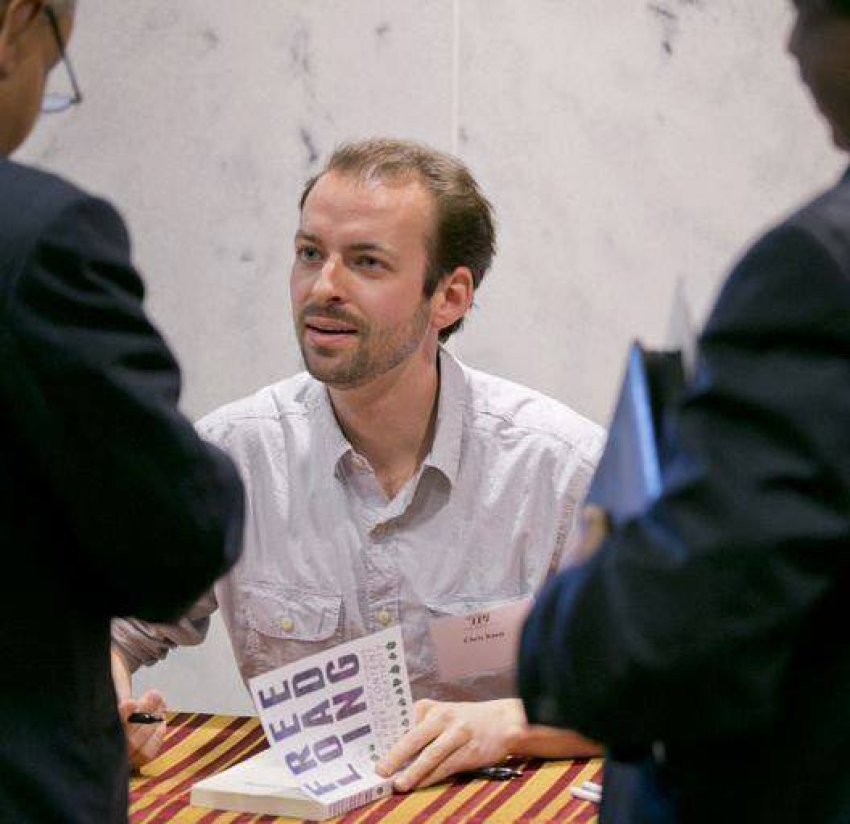
Writes Ruen: "The Pirate Bay isn’t so different from past entities that exploited the hard work of creators for financial gain." For this and other reasons, the term "pirate" hardly fits.
“The pirate is a symbol of individuality and vigilante justice — none of which applies to the mass disrespect and laziness that characterize unlicensed downloading. Thus, 'piracy' lends an unearned veneer of romance to what is essentially a drab and bloodless practice: numbly violating creators’ rights while uploading and downloading bits of data to and from anonymous, isolated computer terminals. 'Arrr!'
"This dream of 'openness' and unfettered copying has been used for years to rationalise illegal exploitation of artists in the digital revolution, just as the principle of laissez-faire economics was used to rationalise the exploitation of child labour during the industrial revolution. Then, the labour movement steadily spoke out for the rights of workers and achieved progress for all of society, just as we all can do our small part to accept the rights of artists and communicate that acceptance to the wider world.
"An often ignored fact is that the essential principle of copyright has been ratified by the United Nations as a human right, summarised within Article 27 of the Universal Declaration of Human Rights: 'Everyone has the right to the protection of the moral and material interests resulting from any scientific, literary or artistic production of which he is the author.' That individual creators have the exclusive rights to their work, have the legal and human right not to be illegally exploited for their labour, is fundamental to who we are as a civilisation of open, democratic societies."
IRONIC TWIST
In another ironic twist, Ruen notes that when copyright is violated, it takes artists' independence away, leaving them open to exploitation by any corporation that can fill the gap. "Torchbearers of anti-corporate punk, Sonic Youth, signed on to release an album through the Starbucks’ record label, Hear Music. Chicago post-rock legends The Sea And Cake sold one of their songs to appear in a Citigroup ad in 2009...
"Under such a system, artists are given incentives to pander and give corporate brands the kind of music that they want. Music fans become incidental. And we get watered down, cross-genre collaborations like the ones sponsored by Converse, which result in songs about having fun, acting crazy and — more than anything — being an individual!
"Bethany Cosentino of Best Coast participated in one such corporate-patronised collaboration with Kid Cudi and a member of Vampire Weekend. The song was called 'All Summer'. 'We just made something that is a fun song,' Cosentino told the [New York] Times’ [Ben] Sisario, 'that will hopefully make people dance around in their Converse during the summer.'"
In Australia, the corporate creep can be seen in events like this year's Santos Opening Night Concert at the Darwin Festival. Aboriginal rapper Jimblah had to perform under the sponsorship of an industry about which he has written protest songs. Stolen Generation country singer Archie Roach - who has supported anti-mining campaigns - suffered the indignity of being introduced by an industry representative who used the opportunity to promote the mining of Aboriginal land.
santos-opening-night-darwin-festival.png
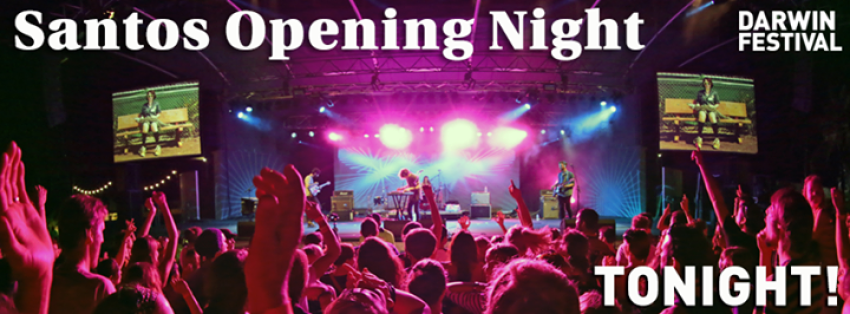
For a generation who have grown up expecting to get music for nothing, such corporate hijacking is no longer seen as crass, says Ruen. But the free culture movement has also wounded other media, including non-profit outlets such as GLW. As leading media critic Noam Chomsky says: "One thing I've noticed is that a lot of activists have been dropping subscriptions to left journals recently. Why? Because they can get them through the internet. It's probably going to destroy the dissident organisations."
Ruen's solutions to the problem will not find many fans on the left. His suggestion of copyright enforcement, albeit for a curtailed length of 50 years, has been salivated over by the likes of The Australian Financial Review and The American Conservative magazine. What may appeal more to those on the left is Ruen's appeal to basic morals - and he suggests music fans, who no longer have to deal with rorting record labels, are already ahead of the curve on that one.
"For all the real or imaginary misdeeds of the content industry in the past, a continually expanding array of licensed digital services are being offered around the globe: digital sales, free streaming, paid streaming, online radio and consumer-direct services like Bandcamp," Ruen writes.
"It turned out that millions upon millions of people are choosing to pay for their digital music, accounting for worldwide digital sales of $4.6 billion in 2010. And thanks to digital sales, total US record sales actually grew by a modest margin in 2011 for the first time since 2004... recorded music was technically a 'growth industry'. Glenn Peoples of Billboard was so struck by the uptick in digital revenues, that he proclaimed 2011 as 'the year digital music broke'."
SPOTIFY PAYS PEANUTS
As musicians blast streaming services such as Spotify for paying out peanuts, Ruen suggests a Fairtrade-like labelling system, the "50/50 FairDeal", under which record companies take only half the proceeds.
Perhaps wary of the criticism that has dogged Fairtrade, Ruen tells GLW: "It isn't hard to imagine a label fudging the numbers, saying they are paying this great royalty when the fine print tells a different story - there'd have to be some sort of legal structure to certify something as being FairDeal.
“Also, part of that idea was me responding to the sentiment that you hear a lot, that, 'Well I'd be happy to stop pirating my music if I knew that artists were actually seeing any of the money.' I want to believe that that's a real thing, that feeling people have, but in most cases I think it's just another one of those boilerplate excuses people have for freeloading, so that they don't have to feel guilty about what they're doing.
"The truth is, artists do see money from sales, either though an advance on royalties, royalties themselves or mechanical royalties, etc. The idea that 'artists don't see any of the money' is a fallacy that I think Freeloading discredits pretty handily.
"At the end of the day, no matter what the royalty is, an artist has chosen to sign on to that label, and the fan has a responsibility to respect that choice - unless they would rather just exploit their favourite artists, which lots of people have no problem doing today. I just don't think that exploitation is anything to celebrate as a culture."
Read a GLW interview with political rapper Sole, who talks about the pros and cons of using Bandcamp, here.
Video: 2013 Global Forum at Canadian Music Week. Music Canada.
Below, Manchester-based house music producer Moodymanc, also known as Dubble D, answers questions about trying to survive as an artist under piracy...
I think people don't realise the sheer amount of hard work that goes into making music, from mastering a musical instrument to mastering your own records. Even for super-talented musicians it's not like falling off a log - there's an incredible amount of hard work involved. There's little time to design and sell T-shirts, for instance. You personally are able to earn money as a session and jazz drummer, rather than selling T-shirts, but that also takes a lot of hard work. I remember you telling me a music teacher asked you how you got so good at drumming, and you told him "practice". How much do you have to practice?
Sometimes eight or nine hours a day. But a typical day, I get up about 7.30am, head to the practice rooms and practise drums for two or three hours, then take a couple of hours break. Then if I don't have a DJ gig that night or that week, I'll be in the studio, making music till about eight or nine at night. One night this week I was up till about 1.30am working on a remix, then I started work on it again at 3.30am because I'd dreamt how it should go. If I have a DJ gig, I'll usually prepare for eight or nine hours a day for the whole week.
moodymanc-live.jpg
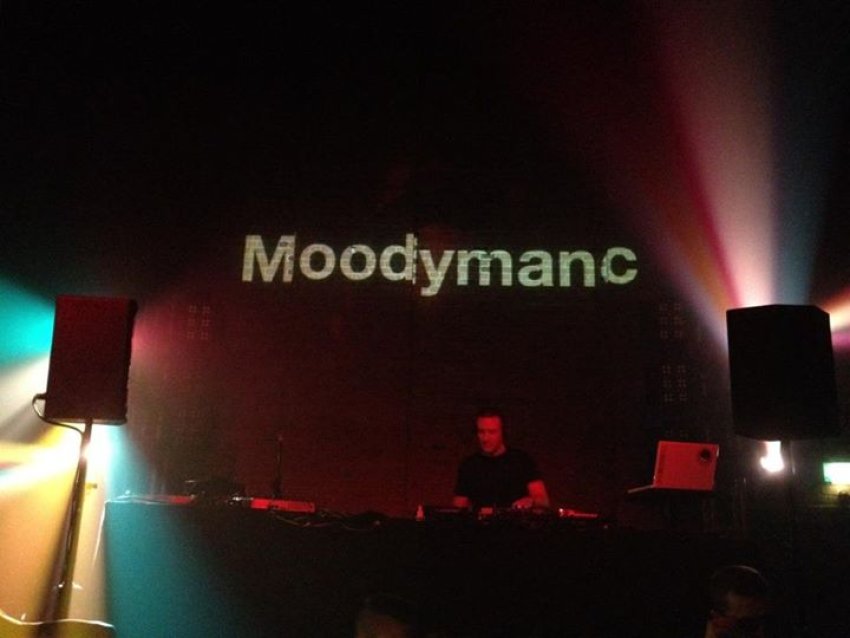
Your listeners might see that you play gigs and DJ all over the world, but I see the other side, that you have to still play wedding gigs and so on, as a jazz drummer, to survive. In fact I couldn't speak to you when I first wanted to Skype you, because you were at a wedding gig. Would you rather be spending your time doing other things?
Not really, no, because I enjoy having that balance.
I think I read an interview with you early on when your house music career was taking off. The funny thing is they were actually expecting you to be making money then - they probably wouldn't now. But in any event, you said any money that you got, you would reinvest in the music.
Yeah, I actually paid no tax this year because I have spent so much on equipment! People don't realise how much financial investment there is, as well as time. You have to invest in the equipment, just to keep that edge. If I have the money, I can pay other musicians properly, to appear on the records. As it happens, I haven't seen any return, really, on most of my records, for years now. You'll maybe see 70 or 80 quid, three years down the line - that's it. Seriously. I recently got asked to tour, but the artist who asked me, who has used me before, couldn't say how much he'd be able to pay me. So now he can't get the musicians he wants to tour with him. That's where the argument about fans paying for live shows instead falls over - because the artists can't afford to put on a proper show anyway, so what the fans are seeing live is so much shitter than it would be had they paid for the record in the first place.
drumming.jpg
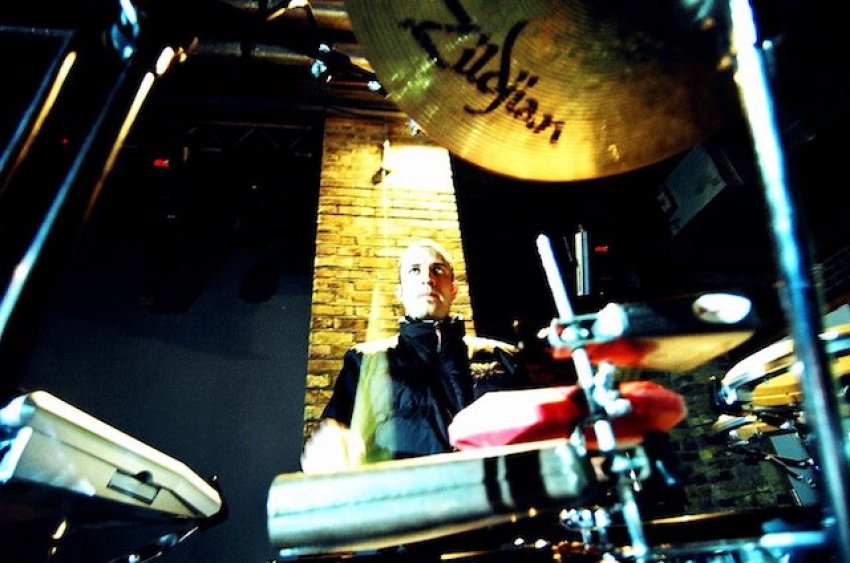
I think a lot of artists still have a fear of speaking out against music piracy, for fear of being thought as uncool, as happened with Lars Ulrich of Metallica when he took on Napster. You don't seem to have that fear - you're always ranting publicly. What kind of reactions do you get?
Positive! Always positive. I think, probably, because my sort of audience get sick of all the false crap they get fed, so it's refreshing to have someone say something honest. Especially with something like Facebook, it's like a popularity contest, who can get the most likes and who can be seen as the most popular - you get people just liking music because it just happens to be that week's cool music that will make them popular - but what's that? A bunch of likes and then just - it's just nothing.
You still use record labels to release your music. Why? What do they bring to the table that could not be achieved by releasing your music independently through something like Bandcamp?
Well, Bandcamp is great, I think, if you're that kind of artist. But for the kind of music I do, it matters to people if it's being sold by Beatport or Juno - those are the forums they look to and trust for this sort of music. It also matters if it's appearing on a certain label - they are like the filters. The kind of people that like the kind of music I do simply don't go looking for it on Bandcamp. Also, I like to add value to the actual product, and I can do that by releasing it on vinyl, so that people are buying a certain quality, that represents a certain investment. I get remix work from vinyl because on vinyl, people can hear the quality of the work that's gone into making the music. People need to start valuing quality in recorded music again - look at the '70s, '80s, people were obsessed with quality. That has to be made part of the conversation again, I think. If I do get digital music, I always buy WAVs or AIFFS, never mp3s.
performing-live.jpg
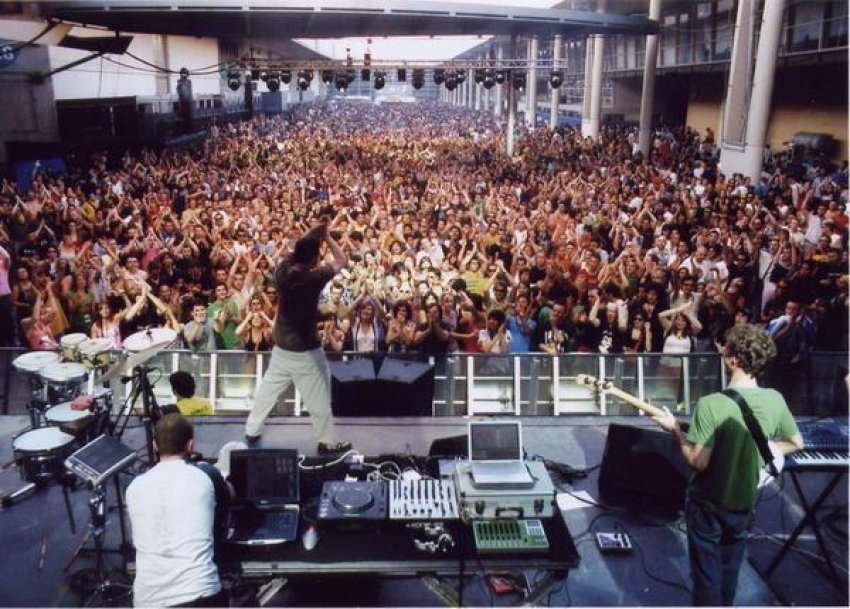
Do you think the tide is turning against music piracy?
No, it's probably getting worse. I've just found a load of pages on Facebook that share pirated music and the worst thing is, I checked out their 'likes' list and it turns out a significant number of my 'friends’ have 'liked' these pages, so they're pretending to be my mate and at the same time they're stealing off me! Actually, I thought it was a bit odd, as some of them were label owners and so on, so I confronted them about it. They swore they have never liked the pages. Perhaps it's these dodgy promotional companies that sell you false 'likes' on Facebook and YouTube that must have signed them up as a false 'likes' for someone else - I get approached about two or three times a week by these companies. In fact, the other week, I put a new release out on Soundcloud and it suddenly went up by about 2000 plays in the space of about an hour at 1pm, 2pm on a Monday afternoon. It looked suspicious, so I looked at my Soundcloud stats and it turns out my player had been embedded by a legitimate-looking online shop that was offering my music for free! So a friend of mine and a number of colleagues got it shut down. We started up a Facebook group called 'keep Facebook pirate free' which is dedicated to sharing information about these fuckers in order to get together to shut them down. But to be honest, I can't dedicate enough time to that, without eating into the little time I have to make music in the first place. What governments should be doing is taxing the ISPs [internet service providers] who make money out of all this shit. I've got a mate who works for one of these online companies. I've known him for about 10 years, and he's always been elusive when I've asked him what he does: 'Ah, ya know, I work in media.' 'So what do you do exactly then?' ‘Ah you know, do dinners, have some cocaine, you know, the usual bollocks.' Turns out he brokers advertising space on the net! They're the fuckers that are making money from all this shit!
Video: Moodymanc 'Black Paint' (Larry Heard's After Dark Mix). Tsuba Records.
Comments
alexb@greenleft... replied on Permalink
alexb@greenleft... replied on Permalink
ward.mat@gmail.com replied on Permalink